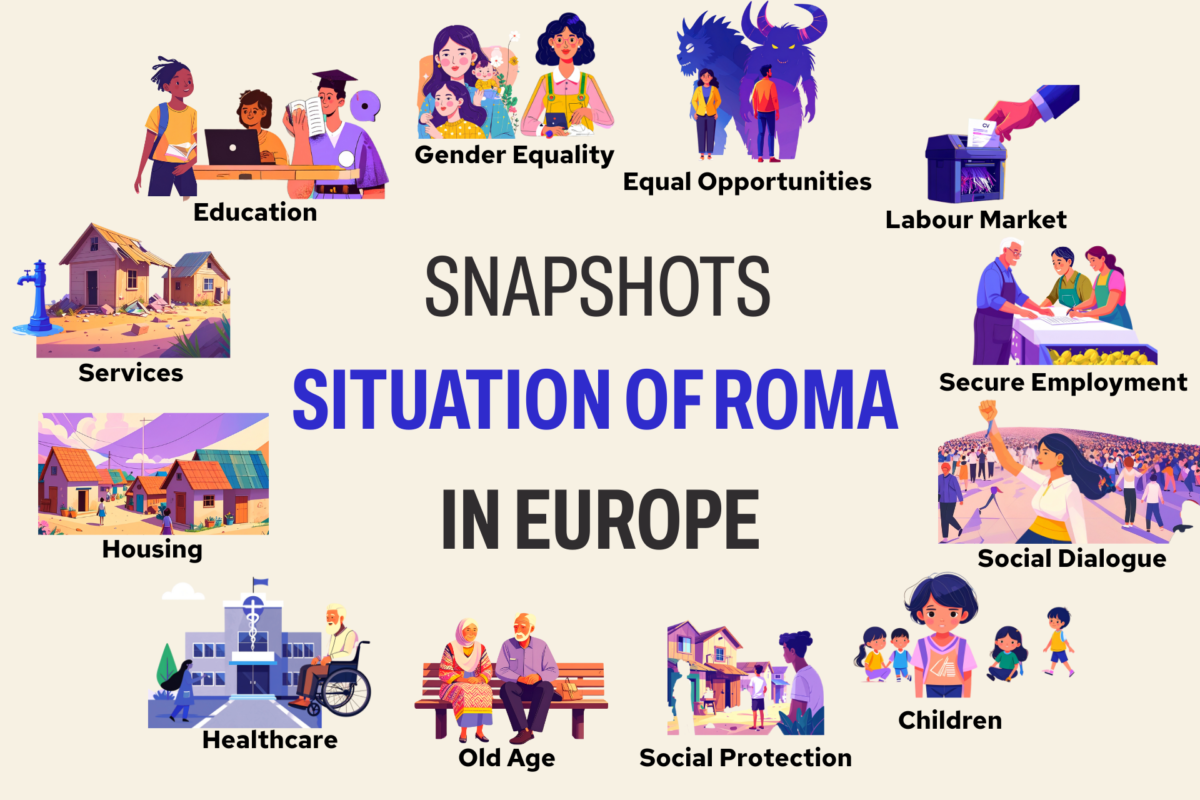Roma in the Second Action Plan of the European Pillar of Social Rights
In 2017, the European Union made history by adopting the European Pillar of Social Rights (Social Pillar), comprising 20 core social policy principles and a Social Scoreboard of indicators, and aiming to guide the development of fair labour markets and resilient welfare systems across Europe.
The European Commission has committed to making the Social Pillar “the compass for Europe’s recovery and our best tool to ensure no one is left behind,” working toward a more just and socially fair Union.
To deliver on this commitment, the Commission launched the first Social Pillar Action Plan in 2021, translating the policy objectives into concrete actions and measurable targets. Now, in 2025, a Second Action Plan is being prepared to further operationalise the 20 principles and to deliver stronger social outcomes across Member States.
In this context, ERGO Network developed a comprehensive analysis of the 20 policy principles of the Social Pillar principles, highlighting how their implementation must meaningfully include Roma rights, realities, and recommendations, as well as actively align with the EU Strategic Framework for Roma Equality, Inclusion, and Participation.
We have shared this analysis series of reader-friendly, visually attractive “Snapshots”, released daily on ERGO Network’s social media platforms (Facebook, LinkedIn, Threads, Instagram, and BlueSky) from 9 to 25 July 2025. Each Snapshot combines the latest statistical data, a concise problem statement, and targeted policy recommendations.
The Snapshots are:
- Education, Training, and Lifelong Learning
- Gender Equality and Work-Life Balance
- Equal Opportunities
- Active Support to Employment
- Secure and Adaptable Employment, Wages, and Work Environment
- Social Dialogue and Involvement of Workers
- Childcare and Support to Children
- Social Protection, Unemployment Benefits, and Minimum Income
- Old Age Income and Pensions
- Healthcare, Inclusion of People with Disabilities, Long-Term Care
- Housing and Assistance for the Homeless
- Access to Essential Services
As the second Action Plan is being shaped, we urge policymakers to treat this process as a critical opportunity to embed Roma inclusion at the heart of Europe’s social agenda – ensuring no Roma is left behind in the EU’s social rights promise.
For more information about ERGO Network’s work on the European Pillar of Social Rights, please contact Amana Ferro (a.ferro@ergonetwork.org) Senior Policy Adviser with the ERGO Network staff team.






















